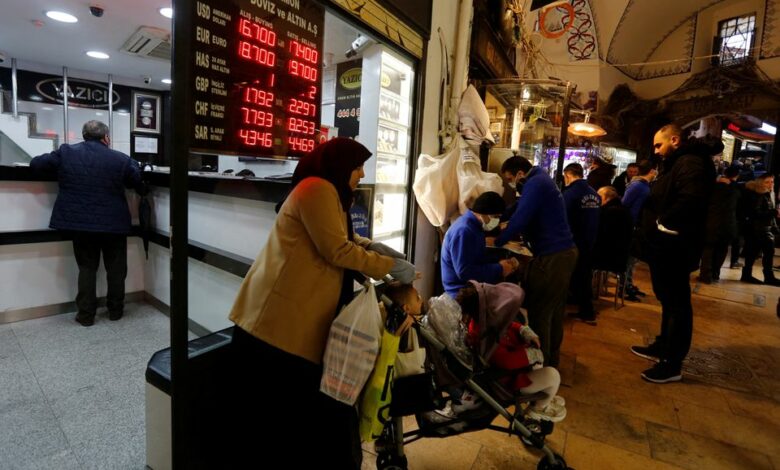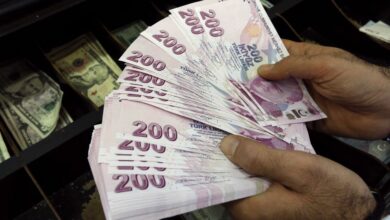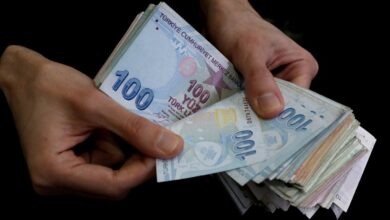
ISTANBUL, Dec 29 (Reuters) – The Turkish lira weakened for the third consecutive day on Wednesday, tumbling 5.6% and eating further into the huge gains made the previous week, as worries persisted over soaring inflation and unorthodox monetary policy.
The losses gathered pace after little initial reaction to the central bank’s (CBRT) 2022 policy document, in which it said it will monitor risks related to the foreign exchange market and do what is necessary to ensure it runs smoothly. read more
The lira plunged as far as 12.5 by 1253 GMT. Despite surging more than 50% last week following state-backed market interventions, it has lost 40% of its value this year.
“The CBRT has no commitment to any exchange rate level and will not conduct FX buying or selling transactions to determine the level or direction of the exchange rates,” the bank said.
It said it would monitor closely the impact of its policy decisions in the first quarter and “the policy framework will be reassessed in order to create a foundation for sustainable price stability.”
The lira surged last week after billions of dollars worth of state-backed market interventions and a government move to cover FX losses on certain deposits, restoring the currency back to its mid-November levels.
The recovery came after President Tayyip Erdogan unveiled an incentive for savers to convert forex deposits into lira, under which their losses incurred due to any erosion in lira value during the deposit period would be reimbursed.
Hasnain Malik at Tellimer said this provided a free currency hedge to domestic savers if the lira depreciates.
“But this also implies higher quasi-fiscal costs should the credibility of this hedge or the currency weaken,” he said.
INFLATION SURGE EXPECTED
The lira hit an all-time low of 18.4 to the dollar before Erdogan’s announcement, after weakening for months due to fears of surging inflation following a series of interest rate cuts sought by the president.
Annual inflation is forecast to have hit 30.6% in December, a Reuters poll found, breaching the 30% level for the first time since May 2003 – six months after Erdogan’s AK Party first came to power. read more
The Turkish Treasury’s benchmark 10-year bond yield climbed to a record high of 24.87% from 24.55% a day earlier. The main share index (.XU100) in Istanbul rose 2.2%.
Turkish lira implied volatility gauges – a measure of demand for options on the currency rising or falling against the dollar – held near record highs hit in recent days, data from Fenics showed. , ,
Meanwhile, sovereign dollar bonds chalked up healthy gains, with some longer-dated issues snapping a two-day losing streak to rise as much as 1.3 cents in the dollar and trade at their highest level since mid-December, Tradeweb data showed. ,
According to traders’ calculations, the central bank’s net forex reserves, excluding swaps, fell some $8 billion last week, with most of the fall in the first two days of the week. They were down $17-$18 billion as of last Friday since the start of the month, when the bank began its direct interventions.
The central bank has cut its policy rate by 500 basis points to 14% since September.



